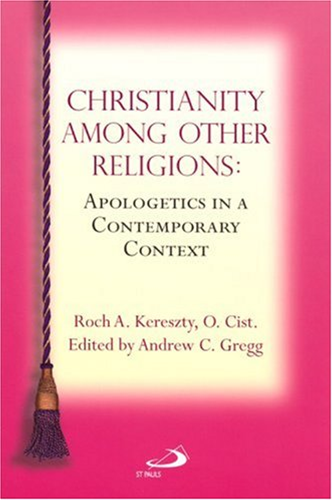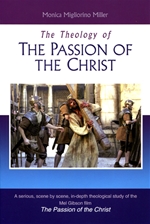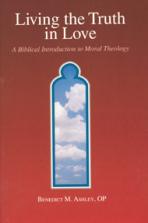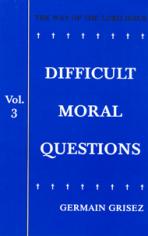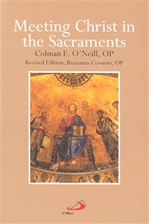Customer Reviews

CHRISTIANITY AMONG OTHER RELIGIONS
Description
CHRISTIANITY AMONG OTHER RELIGIONS
Apologetics in a Contemporary Context
Author: Roch A. Kereszty O.Cist.
Editor: Andrew C. Gregg
Copyright: 2006
First Printed: 08-22-2006
Reprint: 2018, 2024
In today’s pluralistic culture many people - Christians and non-Christians alike ? are searching for the meaning of life but feel confused by the labyrinthine multiplicity of religions in the world. This book intends to show that Christianity is God’s response - expressed in human words and in human history - to the divinely inspired yet sin-distorted universal human search for God. Through a sympathetic evaluation and comparison with Christianity of the major world religions (from Primitive myths and rites to Hinduism, Buddhism, Taoism, Confucianism, Islam and Judaism), this work defends the credibility of the Catholic Christian faith and shows the need for dialogue with these religions in the “new evangelization” of the world called for by Vatican II.
About the Author: Roch A. Kereszty, O.Cist., is the author of Jesus Christ: Fundamentals of Christology, 2nd revised and updated edition (ST PAULS / Alba House, 2002), editor of and contributor to The Eucharist in the Life of the Church (Paulist Press, 2002), co-author with Dr. William Farmer of Peter and Paul in the Church of Rome (Paulist Press, 1990), and author ofGod Seekers for a New Age (Pflaum, 1970). He is adjunct professor of theology at the Graduate School of the University of Dallas and chair of the Theology Department of the Cistercian Preparatory School. Fr. Kereszty received his doctorate in theology from the Pontifical Athenaeum of St. Anselm in Rome.
Book: 240 pages
ISBN: 978-0-8189-1227-6
Prod. Code: 1227-8
Reviews
For many years after Vatican II there was not much new literature produced on apologetics--how to defend the Catholic faith and to prove its truth. In recent years that situation has begun to change. This book by Fr. Roch A. Kereszty, O.Cist., who teaches theology at the University of Dallas, is written as a help for those who engage in dialogue with members of 'other religions' than Christianity. So the focus is not on Protestants, but on non-Christians.
The book contains four parts, plus a Reader's Guide whose purpose is to provide a bibliography for further reading and some review questions to help those who would like to discuss the topics covered. This section is helpful for teachers who may want to use the book in connection with a college course on apologetics.
Part I deals with the philosophical search for the Absolute and the drive that is found in all men to find ultimate meaning in their temporary existence on this earth. Here the author points out that all men, by reason of their intellect and will, are open to infinite, transcendent reality. This search for the infinite or God is present in one way or another in all religions. There may be much error there, but there is always some truth. For the author, the goal of inter-religious dialogue is to discern and separate truth from error in the non-Christian religions.
Part II gives a brief survey of world religions. The main emphasis in on Hinduism, Buddhism, Taoism and Confucianism in China, Islam and Judaism. In each case the author explains what these religions hold about infinite, Transcendent Reality and then compares that with Catholic faith. He points out similarities and differences.
In Part III Fr. Kereszty briefly makes the case for the truth of the Catholic Christian claim to be the one true Church of God and the one, true instrument of salvation for all mankind.
The final section, Part IV, presents the Christian view on the relationship between Christianity and the other religions. The author gives a rationale for dialogue with these religions and the benefits to be expected from such dialogue. Here he speaks about the universal possibility of salvation and the link between that possibility and the Catholic Church. He rejects Rahner's "anonymous Christian" and speaks rather aboutr the "grace-inspired non-Christian." He argues that Christ is the only source of salvation and that all salvation comes through the Church in some way so here we have an elaboration of the baptism of desire which was taught by the Council of Trent in the 16th century. The author defends the thesis that God desires the salvation of all men and that all come to a knowledge of the truth (cf. 1 Timothy 2:4), but those who are saved attain eternal salvation in some mysterious way through the Church and her sacraments. God offers the grace of salvation to all and that grace is oriented to the Catholic Church. Evangelization is absolutely required of the Church because God wants to unite all men explicitly in the one Church of Christ. The author, therefore, makes a strong case for the necessity of the missionary activity of the Church.
This is a useful book for those who are interested in the world religions and the difficult theological questions about the possibility of salvation for non-Christians who do not know about Christ and have not been baptized with water and the Holy Spirit. It is a refutation of the erroneous view that it is not necessary to convert pagans because they will all be saved in any event. --Kenneth Baker, S.J. in Homiletic & Pastoral Review, March 2007





